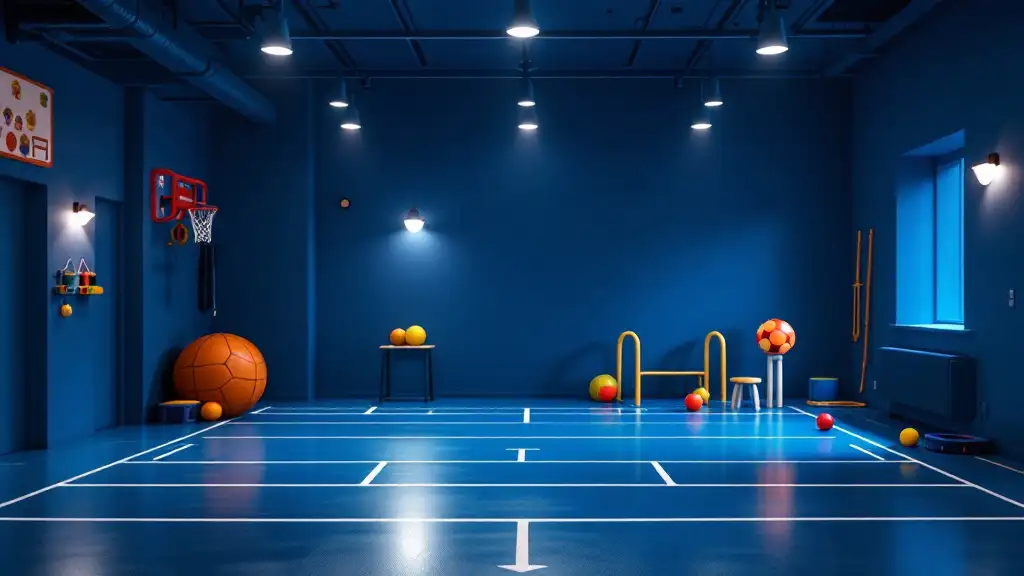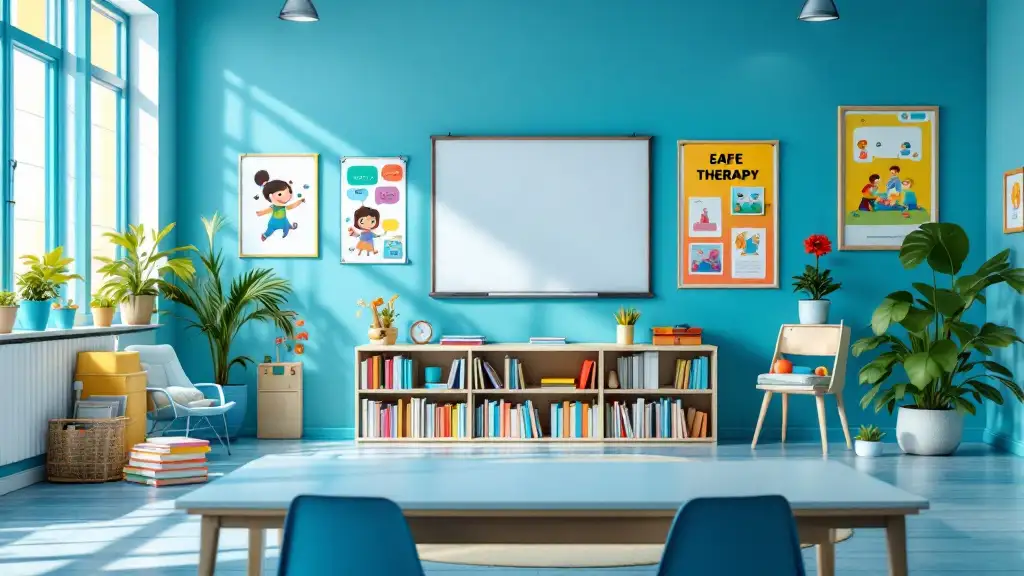
Supporting Adults with Disabilities in Home Life
Managing household tasks can be a significant challenge for adults with disabilities, yet with the right strategies, resources, and support, it is entirely achievable. This article explores essential life skills, practical tips, assistive tools, and community programs designed to promote autonomy, safety, and well-being in the home environment.
Developing Essential Life Skills for Independence

What essential life skills are important for adults with disabilities to maintain independence?
Supporting adults with disabilities to live independently involves nurturing a broad set of daily living skills. These skills include maintaining personal hygiene, managing household chores, planning and preparing meals, and handling finances. Building competence in these areas helps individuals gain confidence and self-sufficiency.
Personal hygiene routines, such as daily bathing, oral care, and dressing, are fundamental to health and well-being. Tools like visual supports, social stories, and adaptive equipment can assist in establishing consistent routines.
Meal planning and cooking are vital for nutrition and independence. Resources such as easy-read recipes, symbol-supported videos, and arranging accessible kitchen layouts can significantly improve confidence in the kitchen. Using pre-cut ingredients and ready-made food options can ease the cooking process, especially for those with limited energy.
Household management involves organizing living spaces, scheduling chores, and maintaining a clean and safe environment. Techniques like zoning, scheduled checklists, and systems such as the FlyLady method help structure routines. Having designated spaces for possessions and using categorization systems like 'Sort' streamline organization efforts.
Time and money management are crucial skills, involving planning daily schedules and budgeting income. These skills foster financial independence and reduce stress. Employing tools like timers, calendars, and simple budgeting apps can support these routines.
Social and interpersonal skills, such as effective communication, problem-solving, and emotional regulation, enhance community participation and relationships. Programs offered through organizations like the ARC or UDS focus on developing these competencies.
Overall, combining practical strategies, assistive tools, personalized support, and community resources creates a comprehensive framework. This approach empowers adults with disabilities to achieve greater independence and improve their quality of life.
| Skill Area | Activities | Support Strategies |
|---|---|---|
| Personal Hygiene | Bathing, oral care, dressing | Visual aids, routines, adaptive products |
| Meal Preparation | Cooking, grocery shopping | Easy-read recipes, accessible kitchen layout |
| Household Management | Cleaning, organizing, scheduling | Checklists, zoning, storage solutions |
| Time & Money | Scheduling, budgeting | Timers, calendars, simple financial tools |
| Social Skills | Communication, problem-solving | Social skills training, community programs |
Achieving independence is a gradual process that benefits greatly from tailored support and consistent practice. Support from families, caregivers, and professional services plays a vital role in this developmental journey.
Structured Routines and Organizational Strategies

How can adults with disabilities effectively manage household tasks?
Managing household tasks can be challenging for adults with disabilities due to physical, sensory, or cognitive difficulties. Implementing practical strategies and routines can significantly enhance independence and reduce stress.
One effective approach is to establish cleaning routines that align with personal energy patterns. For example, scheduling chores during times of the day when energy levels are highest helps ensure tasks are completed efficiently. Recognizing individual fluctuations in stamina allows for a more adaptable routine.
Using structured systems like the FlyLady method can provide consistency. This system involves dividing the home into zones, with specific tasks scheduled for each area, along with checklists to track progress. Such organized plans minimize overwhelm and make chores appear more manageable.
Breaking large tasks into smaller, manageable segments is another practical tip. For example, scheduling laundry on one day and trash removal on another helps avoid fatigue. Preparing a weekly timetable for chores like cleaning, tidying, and organization ensures tasks are distributed evenly, making it easier to maintain a clean and organized environment.
Decluttering is crucial for maintaining a tidy home. The 'six-month rule' recommends removing items that haven't been used in at least six months. Coupled with categorizing belongings for donation or keeping, this method keeps clutter to a minimum and makes everyday cleaning easier.
Creating designated places for possessions—often summarized as 'a home for everything'—is essential. Labels with words and pictures guide individuals in returning items to the correct spots, reducing confusion and fostering independence.
For tackling larger organization projects, the 'Sort' system can help. It involves sorting items into categories during decluttering—such as items to keep, donate, or discard—making the process less overwhelming.
Adaptive routines and tools are also beneficial. Using ergonomic utensils, lightweight vacuum cleaners, or voice-activated devices can make chores less physically demanding. Some people find that listening to music or audiobooks while cleaning boosts motivation and enjoyment.
Communication plays a vital role. Expressing needs clearly to housemates, caregivers, or support workers ensures that assistance is provided where necessary, fostering a supportive environment.
Finally, home modifications like lowering counters or installing safety devices contribute to a more accessible living space. Community support programs, including grants for home alterations, can further facilitate independence.
By combining structured routines, decluttering practices, organized spaces, and assistive tools, adults with disabilities can better manage household tasks. These strategies create a safer, more comfortable environment that promotes independence, dignity, and an improved quality of life.
Supportive Resources and Staff Assistance

What resources and support services are available to assist adults with disabilities in managing household tasks?
Adults with disabilities can access a wide range of support services designed to help them maintain independence in managing household chores. Government programs like the Disability Support Services and the NDIS (National Disability Insurance Scheme) provide tailored assistance, including help with cleaning, laundry, grocery shopping, and personal care. These services are often delivered by trained support staff who understand individual needs and adapt their support accordingly.
Non-profit organizations and community agencies also play a vital role. For example, Caremile, based in Melbourne, offers personalized assistance, including meal preparation, cleaning, laundry, and transportation. These providers work closely with clients to create support plans that meet their specific goals, promoting confidence and autonomy.
In addition to professional services, assistive technology can significantly boost independence. Programs like the North Carolina Assistive Technology Program facilitate access to devices such as ergonomic utensils, talking scales, lightweight vacuum cleaners, or robot vacuums. These tools make household tasks more manageable for individuals with limited mobility or other disabilities.
Home modifications are another essential resource. Adjustments like lowering kitchen counters, installing tactile or visual labels, or adding grab bars help create accessible living environments. Grants such as the Disabled Facilities Grant can assist with funding these renovations, ensuring the home is adapted to the individual’s requirements.
Support programs often have specific eligibility criteria, usually based on age, disability type, or income. For example, support for adults aged 16-65, those with chronic illnesses, or neurological conditions like autism is available, with assessments conducted through processes like Needs Assessment and Service Coordination.
Overall, combining professional support, assistive devices, and home modifications creates a comprehensive framework that empowers adults with disabilities to handle household management tasks effectively, fostering independence and improving quality of life.
Using Assistive Tools and Home Modifications
How can assistive tools and products facilitate daily living at home for adults with disabilities?
Assistive tools and products play a vital role in helping adults with disabilities live more independently at home. These devices are designed to address specific challenges, making everyday tasks easier and safer.
Adaptive kitchen equipment, such as ergonomic utensils, easy-to-open jars, and raised countertops, help individuals prepare meals with less effort. Similarly, mobility aids like wheelchairs, walkers, and ramps enable better movement around the house, especially in areas with stairs or uneven surfaces.
Sensory and communication devices, including hearing aids or visual alert systems, support those with sensory impairments to stay connected and respond quickly to needs or emergencies.
Home modifications further enhance accessibility. Installing grab bars in bathrooms, widening doorways for wheelchair access, adding stairlifts, and lowering cabinets and switches make navigating and using the space safer.
Assistive technology also includes tools like talking scales, ergonomic gardening tools, and adaptive clothing fasteners, which help with daily routines and personal care.
Preparing for emergencies is simplified through supplies like medical alert systems and installing safety devices such as smoke alarms with visual cues. These adjustments ensure that adults with disabilities can handle unexpected situations confidently.
Overall, these tools and modifications contribute substantially to independence. They allow adults to manage daily activities with less reliance on caregivers, boosting confidence and quality of life.
| Tool/Modification | Purpose | Example | Benefits |
|---|---|---|---|
| Adaptive kitchen tools | Facilitate meal prep | Easy-grip utensils | Reduce effort, prevent strain |
| Mobility aids | Support movement | Wheelchairs, ramps | Improve access, safety |
| Home safety modifications | Prevent falls | Grab bars, stairlifts | Enhance safety, independence |
| Assistive technology | Improve communication | Visual alerts, talking devices | Keep connected, respond quickly |
| Emergency supplies | Prepare for crises | Medical alert systems | Ensure safety during emergencies |
Using these assistive devices and modifications encourages a safer, more convenient home environment, empowering adults with disabilities to take control of their daily lives.
Promoting Well-being and Community Engagement Indoors

What indoor activities can support the wellbeing of adults with learning disabilities?
Indoor activities play an essential role in supporting the mental and physical health of adults with learning disabilities. Engaging in arts and crafts, such as painting, clay modeling, and paper crafts, encourages creativity and self-expression. These activities also help regulate emotions and reduce stress.
Sensory rooms and tactile exploration are valuable tools, offering calming experiences through sensory bottles and objects that stimulate touch. These help manage anxiety and enhance motor skills, creating a relaxing environment.
Music therapy is another beneficial activity. Making music, playing instruments, or participating in dance workshops can lift mood, decrease depression, and improve coordination. Such musical activities foster social interaction and emotional well-being.
Practicing mindfulness and relaxation techniques supports mental health. Adaptive meditation, guided imagery, journaling, and seated exercises help increase flexibility, reduce tension, and promote a sense of calm.
In addition to creative and calming activities, recreational pursuits like accessible video games, baking, or simple household tasks, including folding laundry, can boost independence and social engagement. These activities contribute to maintaining cognitive skills and boosting confidence, making indoors a space for growth and community connection.
Overall, integrating these diverse activities within indoor routines enriches daily life, offering therapeutic benefits and opportunities for social participation, crucial for the well-being of adults with disabilities.
Strategies for Stress Management and Emotional Resilience

How can adults with disabilities develop effective household routines?
Establishing routines that align with personal energy patterns can significantly enhance independence. For instance, scheduling chores during peak energy times helps maintain consistency without overwhelming the individual. Using structured methods like the FlyLady approach, which involves zoning and checklists, makes cleaning manageable and less stressful.
Creating adaptive routines is also beneficial. Assigning specific days for chores such as laundry or trash removal ensures tasks are spread out and less burdensome. Additionally, organizing possessions with designated 'homes' makes tidying easier and keeps living spaces functional.
What approaches aid in breaking down household tasks?
The 'Sort' system simplifies large organizing projects by dividing items into categories, which can be donated or kept. Implementing the six-month rule—removing items not used in six months—helps prevent clutter accumulation and maintains an accessible environment.
Why is it important to communicate household needs?
Open communication with housemates, caregivers, or support workers ensures that individual needs are met. Discussing support requirements fosters cooperation and maintains independence in daily chores.
Which skills promote autonomy in daily living?
Key abilities include maintaining personal hygiene, preparing meals suited to dietary needs, managing household tasks, organizing schedules, and handling finances. Utilizing adaptive tools—like ergonomic utensils or talking scales—facilitates task performance and confidence.
How do professional services support independent living?
Disability support services provide tailored assistance such as meal preparation, cleaning, laundry, and personal hygiene routines. Support workers also help with grocery shopping, medication reminders, and transportation, all designed to foster autonomy.
What environmental modifications aid household management?
Home modifications—like lowering counters or installing organized storage—are crucial. Financial aid through grants like the Disabled Facilities Grant can fund such adaptations, making tasks easier and reducing stress.
How can visual supports and routines enhance independence?
Using labels with words and pictures helps individuals understand household routines and organize possessions. Visual cues, paired with routines like scheduled chores, can reduce anxiety and improve efficiency.
What practical tips improve household task management?
Breaking tasks into smaller steps, creating checklists, and employing reminders help manage chores. Incorporating music while cleaning or taking photos of clutter can motivate and guide individuals.
How does tailored support benefit mental and physical health?
Support from professionals like Caremile offers personalized assistance with household chores, meal planning, and personal care. Combining this with adaptive tools and home modifications promotes confidence, safety, and overall well-being.
| Area of Support | Examples | Additional Details |
|---|---|---|
| Household Tasks | Cleaning, laundry, organizing | Personal and tailored support available |
| Meal Preparation | Cooking, dietary management | Includes special diet considerations |
| Personal Care | Bathing, dressing, mobility | Ensures health and safety |
| Transportation | Community outings, errands | Facilitates social participation |
| Home Modifications | Adjusted counters, storage | Grants or financial assistance possible |
By integrating these strategies, adults with disabilities can achieve greater independence, maintain dignity, and enhance their quality of life, ultimately promoting active participation in their communities.
Fostering Independence and Quality of Life
Supporting adults with disabilities to manage household tasks effectively involves a comprehensive approach that includes developing vital life skills, establishing structured routines, utilizing assistive tools and home modifications, accessing professional resources, and engaging in indoor activities that promote well-being. Community programs and support services play a crucial role in providing tailored assistance, enabling individuals to live with confidence, maintain dignity, and participate actively in society. By embracing these strategies, caregivers, professionals, and individuals themselves can create a home environment that not only simplifies daily chores but also enhances overall quality of life and independence.
References
- House Cleaning and Organizing Tips When You Are ...
- 5 Important Daily Living Skills to Have | Adults With ...
- Household Tasks Assistance for Independent Living
- Living with a learning disability | household tasks made ...
- Support around the house
- 9 tips for making household chores accessible | We Are Able
- Household Tasks: Simplifying Daily Living with Caremile
- Really struggling with cleaning/ household tasks
- Listing: Home Personal Assistance Resources












